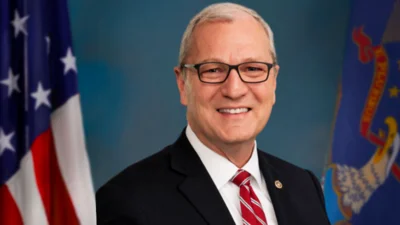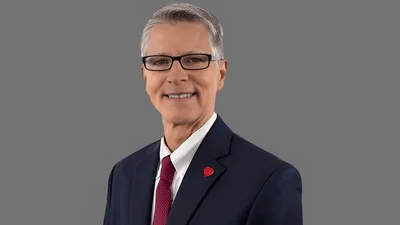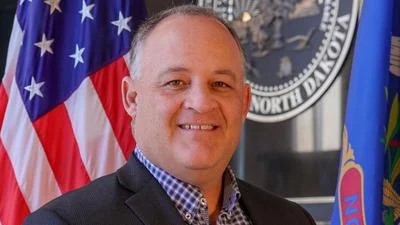Jonathan Holth, Commissioner of Recovery & Reentry for State of ND | Twitter
Jonathan Holth, Commissioner of Recovery & Reentry for State of ND | Twitter
Reentering society after incarceration involves challenges such as finding stable housing and jobs, and getting healthcare. North Dakota is addressing these challenges through a partnership among various agencies and community organizations. This collaboration aims to support justice-involved individuals and enhance reentry success.
Reentry and Recovery Commissioner Jonathan Holth emphasizes the importance of having the right support to build a stable future, saying, "Reentry isn't just about leaving incarceration—it's about having the right support in place to build a stable future." Holth affirms that working together creates stronger pathways for success.
The Department of Corrections and Rehabilitation (DOCR) emphasizes a network of support, addressing barriers like affordable housing and the stigma of a criminal record, and ensuring continued engagement with support services after release. According to DOCR Reentry Manager Robyn Schmalenberger, each person's pathway is unique, requiring flexible services: "Every person has a different pathway into the choices they make, and every person is going to have somewhat of a different pathway out of it."
DOCR Community Resource Manager Travis Collins highlights that early intervention is crucial for reentry success. He states, "By bringing services into the facilities, we're not just preparing people for release—we're helping them build relationships and access the resources they need to succeed from day one."
Healthcare is a vital focus, with a collaboration between DOCR and Health and Human Services (HHS) ensuring incarcerated individuals can apply for Medicaid before release. This initiative secures continuous access to medical care. Employment support is a priority too, with Job Service North Dakota (JSND) providing job search skills and connecting individuals with employers. As JSND Bismarck Workforce Center manager Amy Arenz observes, "The positive impact of this program is evident, not just for individuals but for North Dakota's workforce as a whole."
North Dakota Child Support adapts to financial challenges faced by incarcerated parents, allowing child support obligation termination for those sentenced to 180 days or more. Meanwhile, housing and recovery support are emphasized through the Recovery Housing Assistance Program and the Free Through Recovery program, offering structured environments and resources.
Heather Brandt, HHS manager behavioral health community supports, underscores the importance of support services, noting, "Having stable housing and recovery support in place can be the difference between success and returning to the system." DOCR Director Colby Braun highlights the wider benefits, stating, "When people return to our communities with the right resources in place, it benefits everyone as it leads to stronger families, safer communities, and better outcomes for all."






 Alerts Sign-up
Alerts Sign-up